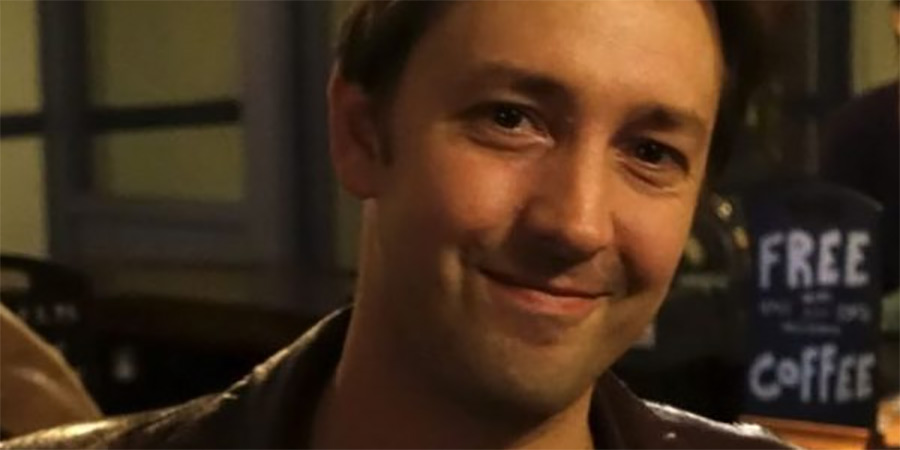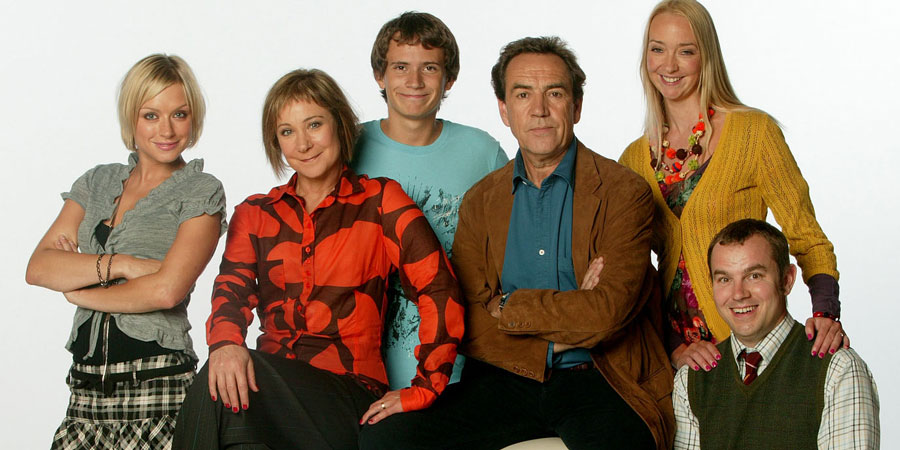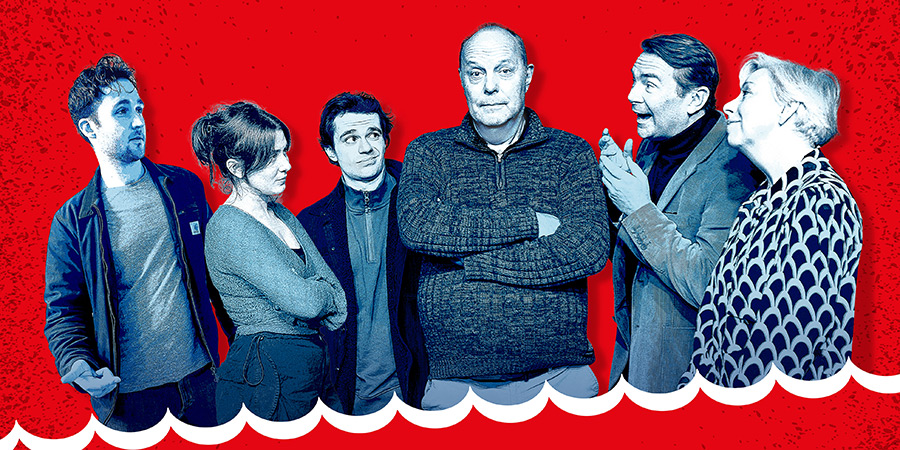My Comedy Career: David Cantor

Scriptwriter David Cantor has worked on shows such as My Family, Two Pints Of Lager And A Packet Of Crisps and That Mitchell & Webb Look. His latest project is Jumping The Shark, a touring play inspired by some of the greatest comedy writing legends.
Tell us what you do in your job.
I work between various genres and, as such, get to have some variety which I'm really grateful for: I regularly script edit and have been employed on several CBBC shows as well as editing on a Disney Drama; I also submit material for sketch shows, sitcoms and comedy dramas and, more recently, have written for the stage.
How did you first get involved in the comedy industry?
I was a Writer's Assistant on a long running BBC comedy and managed to progress internally that way, before making contacts and getting employed on similar series. I was especially lucky that the show was team-written so I got be around and learn from numerous writers who as well as being ridiculously talented were also ridiculously nice! Simultaneously I was writing and performing my own short films and sketches which enabled me to get an agent.
What key skills do you need to be able to do your job well?
As well as the obvious ones, I think discipline is key, especially when you're managing your own time, your workload and you need to hit deadlines. There can be idle periods where you're between jobs, there's a lot of rejection involved and writing can be a lonely pastime so having a thick skin and a positive outlook can't hurt either. As well as having a confidante or a cat you can complain to!
What has been your biggest career achievement to date?
I was one of the youngest and longest serving writers on the BBC show My Family, which seemed mind blowing to me at the time and where I learnt a massive amount about making mainstream comedy.

Having my first play read at The Old Vic and getting to supply material for some of my comedy heroes - Robert Lindsay, Vic Reeves and Bob Mortimer - are also up there. Likewise getting to write for one of my idols, John Sullivan (Only Fools And Horses), who - needless to say - influenced me hugely.
And what has been the biggest challenge/disappointment?
Biggest disappointment? How long have you got? :(
I've had projects get cancelled at the last minute, had series fail to get commissioned, lost out on some big jobs and the like. As above, staying positive and keeping on writing regardless always just about stabilises me. That and the aforementioned 'feline confidante'.
Talk us through a typical day.
I find I'm at my most productive in the morning so writing-wise I do a lot of the heavy lifting then. I often start the day by watching the news to keep abreast of what's going on and possibly listen to music or a podcast that gees me up. In the afternoons I might have a walk - weather permitting, a Zoom meeting - Wifi permitting and end up re-writing all of what I did that morning :)
Tell us a trick/secret/resource that you use to make your job quicker/easier.
I don't have any short cuts I'm afraid. If anyone has any I'm all ears! I guess writing incidents down that happen in your daily life is a big help I'd say, it certainly has been for me. You never know when you'll need to draw from experiences, however mundane they may seem when you're actually having them.
How are you paid?
Payment is completely different to a 9-5 job, which can be a good or bad thing depending how you look at it. It's either feast or famine with not much in between.
Occasionally I'll do work with a weekly salary but more often that not I'm paid an option fee - a small amount up front for an idea that a company will try and develop - or if I'm writing an episode of an existing show I'm paid in instalments for each draft.
Normally three drafts followed by a shooting script. As for the theatre, you're generally paid once the show is up and running, depending on ticket sales. Basically, whether it's terrible or not!
If you could change one thing about the comedy industry, what would it be?
Personally I think we need to create a stronger dialogue between writers, producers and commissioning editors. I feel that sometimes the communication lines can be poor and leave writers feeling isolated, even more than they already do. Whereas a strong collaboration between creatives can only help all parties I'd say.

What tips would you give for anyone looking to work in your area of the industry?
As above, I think discipline, positivity and having a thick skin are invaluable. Regarding steps, there's some many mediums for writers to display their work now, whether it by via live performance, social media or writing comps, so it's important to use them to get your voice heard and your writing seen.
If you can get a job on a TV show, even at junior entry level, that's also a way in and certainly worked for me. The classic 'inside job'. Even if you start as a runner or a researcher say, you're at least getting to be around people who could ultimately support your ambitions and navigate you closer to them.
Having a literary agent is also important and while obtaining one is undeniably hard, if you're able to have agents come and see something of yours performed or you're able to send them a sample script, that's the first hurdle cleared at least.
This article is provided for free as part of BCG Pro.
Subscribe now for exclusive features, insight, learning materials, opportunities and other tools for the British comedy industry.


